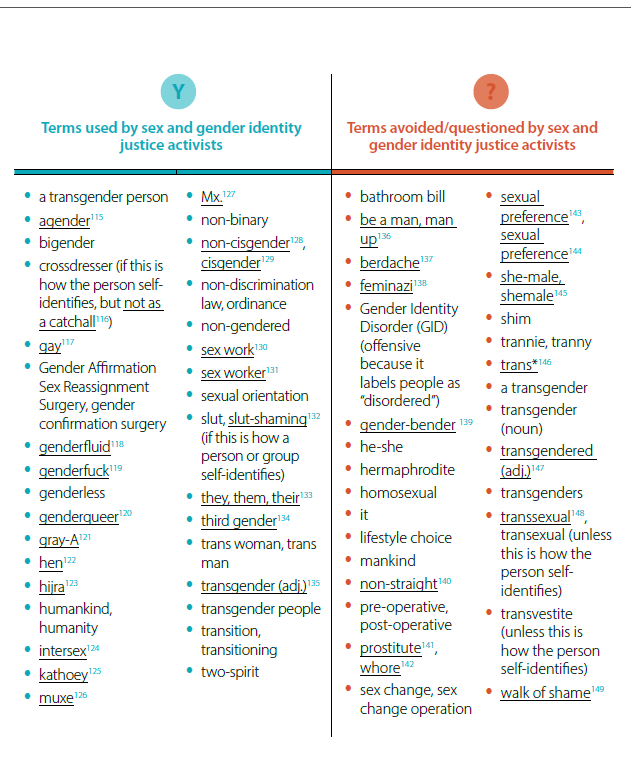The words [Equity-language] guides recommend or reject are sometimes exactly the same, justified in nearly identical language.
…
Although the guides refer to language “evolving,” these changes are a revolution from above. They haven’t emerged organically from the shifting linguistic habits of large numbers of people.
…
Prison does not become a less brutal place by calling someone locked up in one a person experiencing the criminal-justice system.
…
The whole tendency of equity language is to blur the contours of hard, often unpleasant facts. This aversion to reality is its main appeal. Once you acquire the vocabulary, it’s actually easier to say people with limited financial resources than the poor.



I’m in agreement with you there, it shouldn’t be something to obfuscate the meaning. It should be about being more precise with your meaning if anything, about being more aware of what your word or phrasing choice may imply. But there’s always going to have to be change or people will end up saying things they didn’t mean if they refuse to acknowledge a word has changed over time or if different words may carry different meanings for different people.
I’m skeptical of the author’s argument that this is some new phenomena though. I’m also skeptical of the idea that if you’re being more careful and precise in your language it means you’re just doing it to ignore real problems. Not saying no one has ever done that before. But our brains think with language, so the language we use matters and affects ourselves as much as others, in my opinion. It’s not something that should be used in place of fixing problems, but something that could potentially help people think in that direction.
I think the new phenomenon is discussed:
It’s calling out that a handful of sources that are cited in profession specific style guides that have referential loops, and are managed by a small portion of people. Based on the names, of these sources, is the activist nature appropriate for general style guides, or is it a dangerous tool of politicization of language? I identify as a leftist and progressive, but I don’t think partisan orgs with this much influence and questionable methodology should set standards. The Progressive’s Style Guide links websites like this as sources ( which is basically one journalist’s opinion blog post): https://grist.org/climate-energy/how-to-write-about-climate-pull-up-a-barstool/
Or this table from the source. How is “genderfuck” a professionally acceptable term, but “sexual preference” a taboo. Or slut or slut shaming is allowed, but only in certain context? Or we can’t talk about metaphors of spirit animal since that is appropriation, but for gender two spirit is okay to appropriate? How does a lay person navigate this minefield of discourse without a masters degree and staying up on style guide updates?
Or this page on discussing Israel. Personal politics aside, this style guide has an obvious political agenda, right?
This, decades-ago, was written by Douglas Hofstadter ( who also wrote “Godel Escher Bach: An Eternal Golden Braid” ) in order to break our unconsciousness about the prejudice in “Mr.”, “Miss”, and “Mrs.”: he remapped them from sex to race…
https://www.cs.virginia.edu/~evans/cs655/readings/purity.html
I’d say it’s neither ~black nor white~, wrong nor right, nor is it some infinitely-grey-undecideable thing.
There definitely is prejudice in our language, and it definitely reinforces the network of already-experienced-prejudices in one who is subject to it.
I changed my name to get away from all the abuse tangled into my original name.
That was required.
Having one’s own unconscious block/obstruct one’s potential for healing, because of abuse-reinforcement is a real fact of life, for many.
I don’t disagree that language needs to evolve and change. But I don’t know that swapping the words does anything to change the unconscious bias. I think a racist is still racist regardless of the language they use being explicitly about race, using coded words like “urban” or some other euphemism, etc. On the other hand I think someone’s white grandmother that donates to orgs like the ACLU or NAACP says something like “we need to do more to assist colored kids get into college, have more opportunity…” is using antiquated language, but working in the right direction of positive social change.